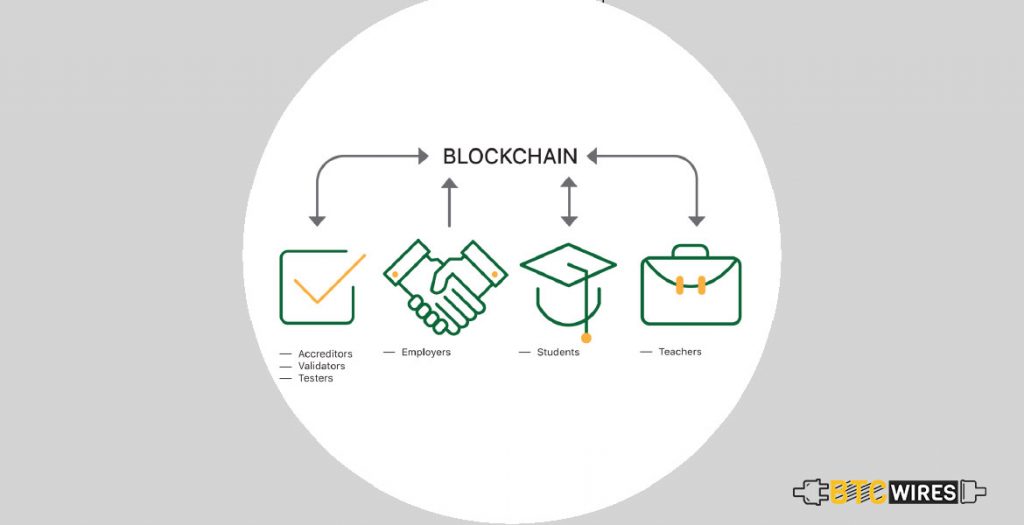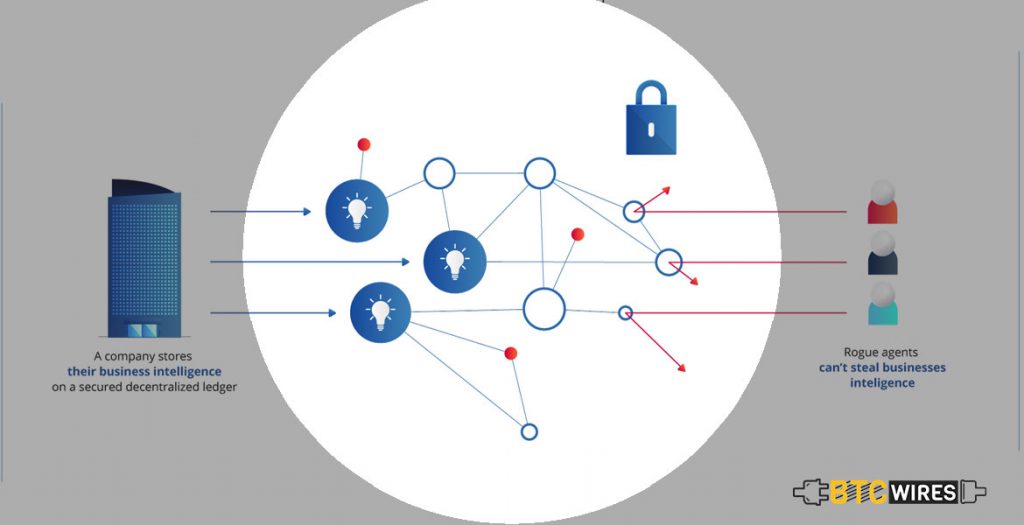Oct 14, 2018 12:30 UTC
| Updated:
Oct 14, 2018 at 12:30 UTC
Blockchain in Education
There is no denying that the field of education is a central focus in all of the world’s developed countries. This is because of the fact that the future of many important areas, for instance, medicine, science, industry, agriculture and almost all others, relies on the country’s education level.
In spite of the remarkable growth in robotics, and Internet and IT Technologies, human resources are still the most precious resource for any business. Unlike popular opinion, advanced technologies are helpful in improving the sphere of personnel training as well as solving numerous problems.
Not just private, but many state educational institutions too are either being prepared to implement blockchain-based tools, or they are conducting research that will help with strengths and weaknesses of implementing blockchain technology in the education to be identified. Let’s get on the issues faced in the education field and find out the ways of solving them using blockchain technology with the examples of perspectives on implementing blockchain technology in the field.
Blockchain Will Help Replace Paperwork

An incontestable advantage of blockchain technology frequently talked about is that it will make the dematerialization of documents conceivable. It is likewise anticipated to help in avoiding the risk of losing or misrepresenting paper documents.
Document-based higher education diplomas, extra training course certificates and school certificates can be lost any time. Once blockchain is implemented, then the information about student courses and grades which have been undertaken will never be lost, and it’s impossible to falsify the information. In the meantime, one can easily access the information with the owner’s consent.
These days, the education field needs central authorities to focus on student certificates. Every day, educational institutions need to process thousands of requests from the varied educational organizations to send copies of the documents. They wish to ensure that the person has in fact graduated from a particular university.
Storing the information about education into the decentralized public ledger will remove the doubt for employers about an employee’s level of knowledge. With the blockchain technology, storing the information about one’s level of education will make it impossible to fake the diploma. It is successful as it will solve the problem of low qualification levels of lawyers, doctors, economists, engineers and other popular occupations. Thanks to this database! Now, the employers will be able to filter the information about the employee’s skills and knowledge quickly and easily, with no doubt as to its reliability.
These days, recruitment for particular positions is a tedious process. There is no single algorithm available to narrow down the search to only those applicants with the required skills and knowledge.
Instead of organizing papers and certificates in education over the lifetime, people will be able to record the information in blockchain much easily, which will make it accessible to employers wherever they are.
So far as the issuance of diplomas and certificates are concerned, educational institutions need to keep a paper record of the students’ progress for the entire duration of their study, creating a burden on teaching as well as many bureaucratic impediments.
Blockchain Technology For Cost Saving

Indeed, certificates and diplomas comprise an insignificant share of all the documents in the world, but in eliminating this insignificant share many private as well as public institutions will be able to decrease their expenses on printed products.
The paper and printing cost is not the only expenditure associated with documents obtained on completion of education. Major schools and higher education institutions spend huge amounts on storing this information too.
Using blockchain in education field, the right to control and store the personal data of applicant will be transferred to the applicants themselves. It will greatly help the educational institution to have an organized solution and save cost on paper work. Blockchain will help saving not just billions of dollars but also an incredible number of hours of labor by removing the burden on educational institutions to responsibly store the documents and provide access to them at the request of authorities.
Education Financing and Blockchain

Cryptocurrencies and financial services are the most popular uses of blockchain technology. The prospects for welcoming blockchain into the education sector incorporates not just the development of narrowly targeted solutions, but also the adjustment of cryptocurrencies for use in educational institutions.
Financial account is a significant component in the work of universities, schools and other educational institutions. Blockchain technology is meant to improve the system for calculating not just the scholarships for the students but also salaries for the teachers. It will offer a transparent and fair mechanism to fund projects.
Uses & Prospects

The most forward-looking educational institutions have already begun to improve the sphere, enabled by modern technologies. Let’s discuss a few of them –
The MIT (Massachusetts Institute of Technology) is a world leader, when it comes to training specialists of the highest level in several technical areas. Within the framework of pilot project to implement blockchain, the institute has issued nearly hundred digital diplomas for its graduates.
Pioneering in introducing full-scale blockchain implementation to improve education is the University of Nicosia, which is the largest private higher education institution of Cyprus. The university has already implemented a fully-functional blockchain library to store all the student information and the information about their grades, diplomas and certificates.
Another manifestation of the University’s loyalty to the latest technologies lies in the ability of students to pay their school fees in Bitcoin. Over the web, university courses are accessible to the students from almost hundred countries. Diplomas and certificates are recognized by the employers practically all over the world, since the university is the member of the European Association of Institutions and European Universities Association in Higher Education.
Final Thing!
With the help of blockchain technology, this new resource will offer simple yet efficient interaction between the applicants at educational institutions and private teachers, as well as HR managers, while additionally being responsive to their particular requirements. Universal as well as international mechanisms for the interaction between all these participants will offer a fine example of how pressing problems within the industry can be resolved using blockchain technology, and will motivate other institutions too.
Another advantage to developing blockchain in education is the ever-increasing popularity of online courses. Institutions which target the online audience are usually advanced and forward-thinking, so far as new technologies are concerned, which bring the institutions closer to blockchain implementation.


























































